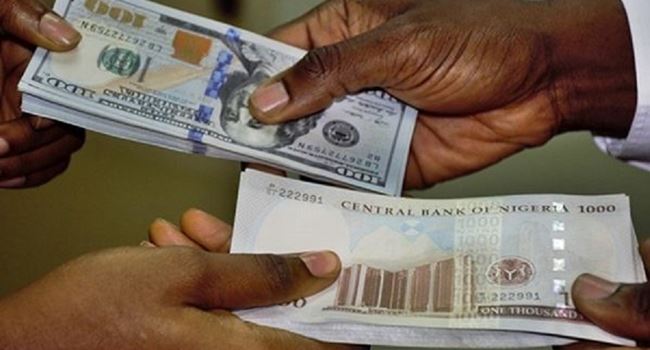The Nigerian naira has been on a downward trend this week after keeping its composure in the face of the U.S. dollar’s supremacy at the official window, reaching a new low on Wednesday.
Nigeria’s weak local currency has driven market participants, local investors, and manufacturers to start hedging their exposure with foreign currency assets, which has increased demand for foreign-denominated assets. Negative inflation data signals caused the naira to weaken as market investors requested dollar supply due to the country’s FX shortage.
Due to an imbalance in FX supply and demand, the Naira lost value versus the dollar and traded for N465.13 in the window for investors and exporters. Market participants requested more foreign exchange payments than were readily accessible, which increased rates since the overall amount of transactions in dollars fell short of demand.
Comparing the most recent exchange rate print to the N464.67 it swapped for the dollar on Tuesday, there was a 0.10 percent reduction. On Tuesday, the open indicative rate reached a high of N463.79 to the dollar. Prior to it settling at N465.13, a spot exchange rate of N466.89 was the highest rate utilized for trade during the day.
Instantaneously, the spot exchange rate is established. During the course of the day’s trade, the Naira fell as low as N460 to the US dollar. At the official Investors’ and Exporters’ window, 267.04 million dollars worth of transactions were made.
Last Monday, the FX spot rate was changed to N466 per USD. The naira, however, strengthened before the inflation news. The statistics agency reported that in April, headline inflation increased by 18 basis points to 22.22%.
Analysts generally agree that the naira is trading above its fair value, but the Central Bank of Nigeria (CBN) continues to oppose devaluation.
The poverty index would increase as a result of a devaluation, which would also result in more unemployment and higher production costs for firms. Analysts told MarketForces Africa that the monetary authority is “between the devil and the deep blue sea” with regards to an official depreciation of the naira.













